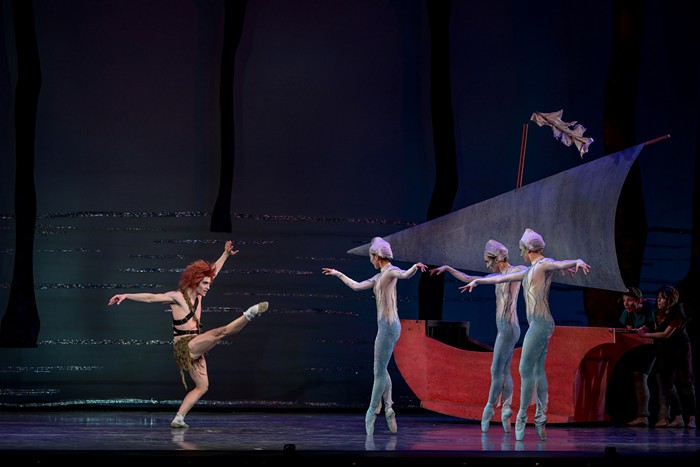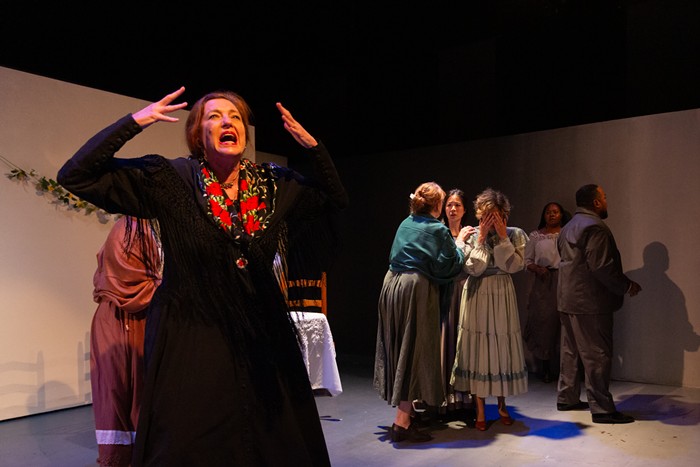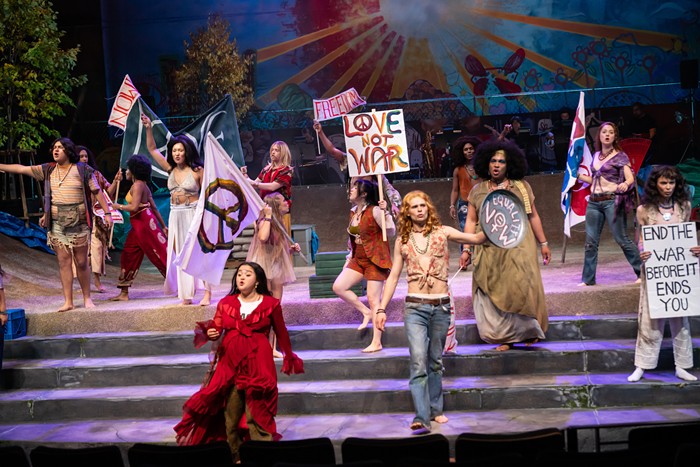Dada, the reactionary movement to the hysteria of WWI, strove to chaotically and negatively reinvent artistic expression. It was a fascinating, confusing set of ideals charged with the energy of dialogue and youth and insanity, all set against the Cabaret Voltaire, the Dada headquarters. It was also short-lived--about as long as the war--and afterwards its members drifted, some fading back into obscurity.
Such is the case with the three main characters of Artist, Beauchamp, Donner and Martello, who continue to live with one another as aged compatriots, hobbling around an attic studio and feebly making their last pieces of art. The muse that still haunts them is the beautiful Sophie, a blind girl who became enamored with their art when she could still see. In a tragic mediation of love at first sight, Sophie, uncertainly in love with a blurry memory of one of the three, removes herself from their world, forever preserving herself in the artist's minds as they grow old.
The play unfolds from the present in a series of flashbacks, taking the audience back through the 1920s to the onslaught of WWI, when trenches and guns invaded the French countryside. The script then gradually returns to the present, each scene further explaining previous events.
Artist is difficult to ease into because of this, and isn't readily absorbing. Stoppard's witty dialogue is compromised as the three principle actors (Jacob Coleman, Patrick Fooks and Kate Sanderson) struggle to find their initial chemistry while also portraying old people. The show perks up when Sophie (Aurora Erlander-Miller) enters the mix and the actors play the 20-somethings they really are. The company has not mastered the art of theatric conversation, and are more most interesting when action preoccupies the stage, such as when a blind Sophie pours a tea service. The group may want to reconsider collaborative directing, from which I've yet to witness overwhelmingly successful results. ANNA SIMON


















